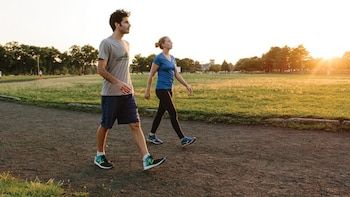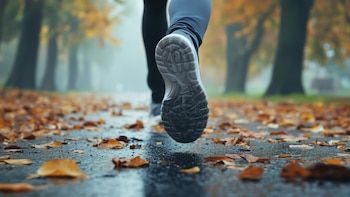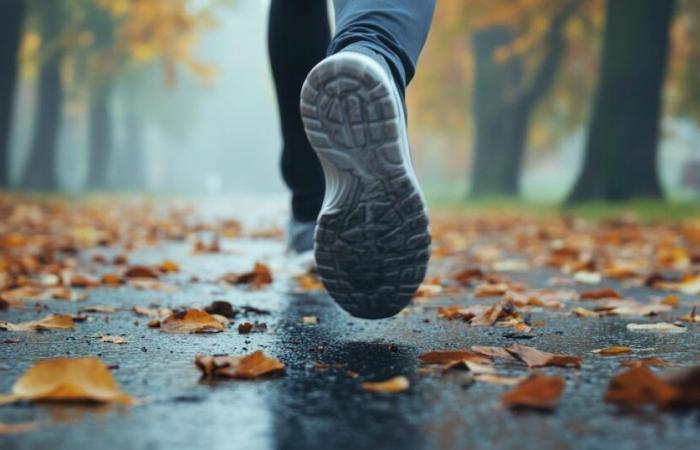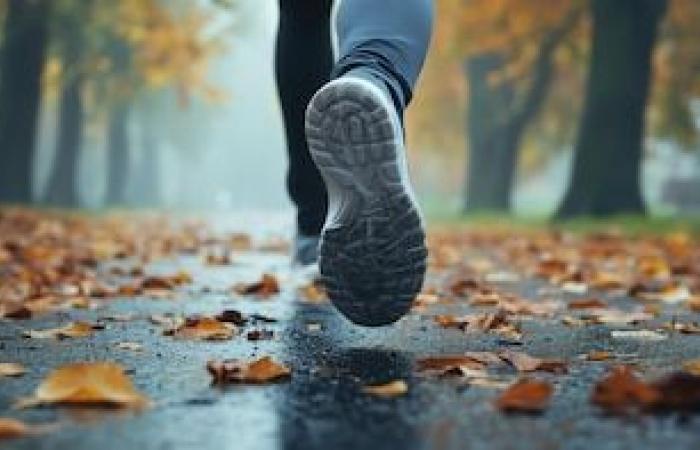Although it is not among the most promoted trends in the fitness world, walk It continues to be one of the most widespread and effective physical practices. At its low cost, ease of access and low risk of injury, there are physiological, neurological and metabolic benefits that support its importance as an essential exercise.
Researchers such as Professor Brian Carson, from the University of Limerick, and the Ireland abigail performance strategist, highlight its multiple effects on the body and mind, even without strenuous routines.
According to a Australian study about world sports participation, Walking is the most practiced physical activity in four of the six regions analyzedincluding America and Southeast Asia.
Despite its apparent simplicity, Carson, who is also a scientific advisor to Whole Suppp, emphasizes that Walk “mobilizes the whole body”which raises energy expenditure and muscle metabolic demand.

The act of walking triggers a series of moderate but significant physical responses. The breathing accelerates to supply more oxygen to the musclesalthough without generating extreme exhaustion. As a continuous low intensity activity, walking facilitates sustained energy supply and favors the use of body energy deposits.
In addition, Carson emphasizes that this activity activates the nervous system in a coordinated way. “Our brain and nervous system become more active as they process sensory information and direct the movement of the muscles in sequence”he explains. This fluid coordination contributes to motor and cognitive well -being.
Neurological benefits are also notable. A study of Stanford University He showed that walking improves creativity by 81% during divergent thinking tests. This effect is enhanced when walking outdoors, where the environment additional stimulates the cognitive function.
For its part, it was found that regular aerobic exercise, such as walking, can increase the volume of the hippocampus and neurotrophic factor levels derived from the brain (BDNF). “It’s like a brain fertilizer,” says the study. This component strengthens neurons and improves communication between brain cells.

Carson and his team also directed a meta -analysis at the University of Limerick that He revealed how to walk helps break with sedentary behaviors. In addition, the rhythm has a relevant impact: walking at accelerated speed is associated with better cardiovascular and longevity indicators.
The idea that cardiovascular exercise inhibits muscle growth is common in gyms. However, Carson clarifies that the relationship between walking and muscle mass is more nuanced. “In a study where the steps were reduced to less than 1,500 per day, a significant reduction of length in the legs and the synthesis of muscle proteins was observed by 28%, even after a food rich in protein,” he explains.

However, walking without any complement does not generate muscle hypertrophy. He also adds that Combined resistance training is effective in maintaining muscle mass. Increase intensity through rucking —Caminate with a backpack – does represent a greater muscle stimulus, especially for the lower part of the body and the core.
Where walking presents a clearer advantage is in the loss of fat. According to experts, this activity enters the Liss spectrum (Low Intensity Steady State), optimal modality for fat metabolism. The body tends to use lipids as an energy source during prolonged low intensity efforts.
And study reinforced this statement by demonstrating that adding a load (as in the rucking) Improve body fat reduction.
Walking is not only an efficient way of exercising: also It is a tool for Mental well -being. The activation of the parasympathetic system induces a soothing effect that reduces stress and favors mental clarity. As Carson indicates, “we should think that walking is the basis of our physical activity and a means to maintain or improve our health.”

Although it does not cause immediate transformations or appear among the most intense routines, Walking is still a pillar of physical and mental well -being. Its positive impact on metabolic, cerebral and emotional health makes it an essential habit, adaptable to any stage of life. As Carson summarizes: “It is not a fitness fashion; it is literally the way we must move.”











